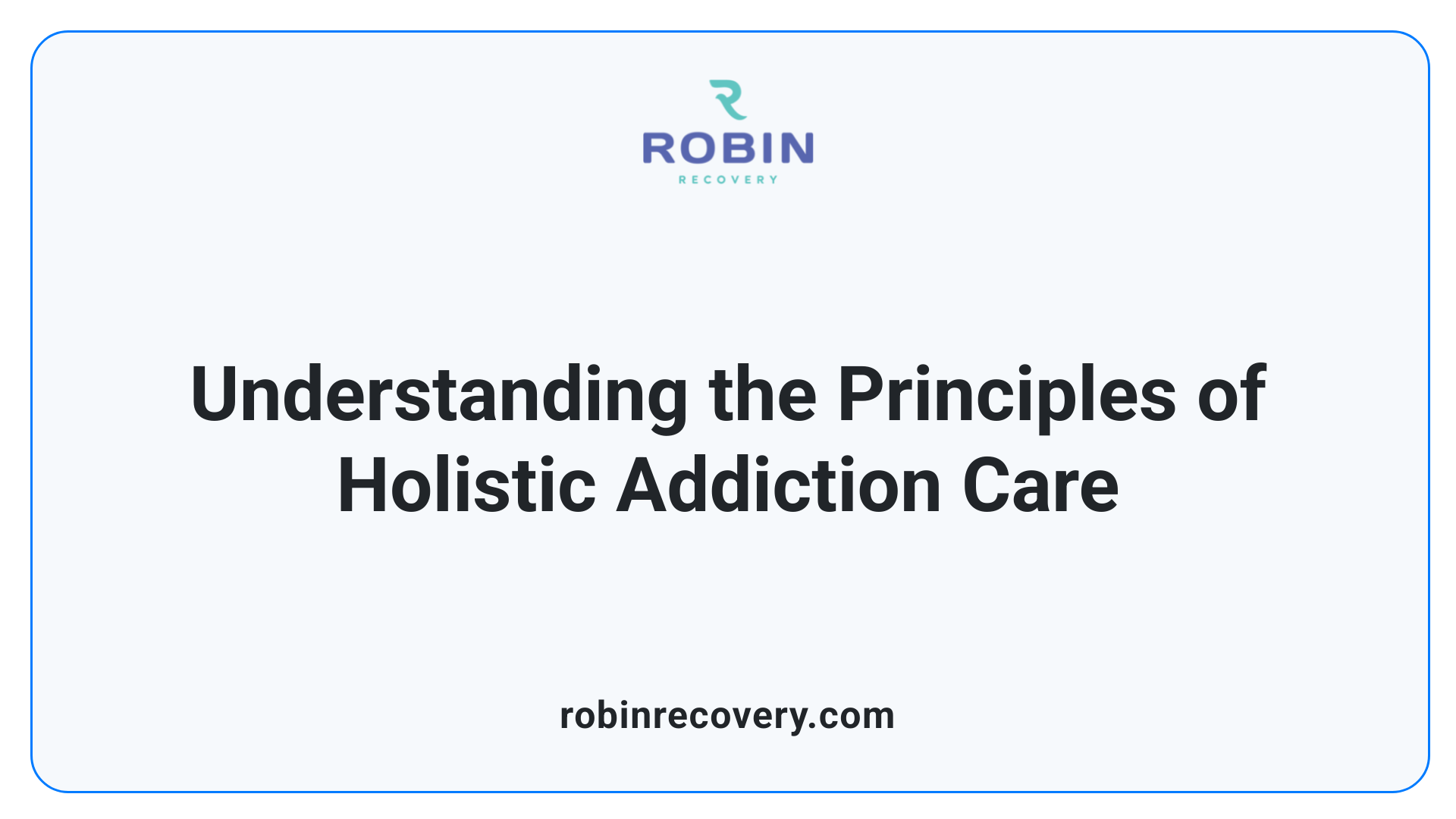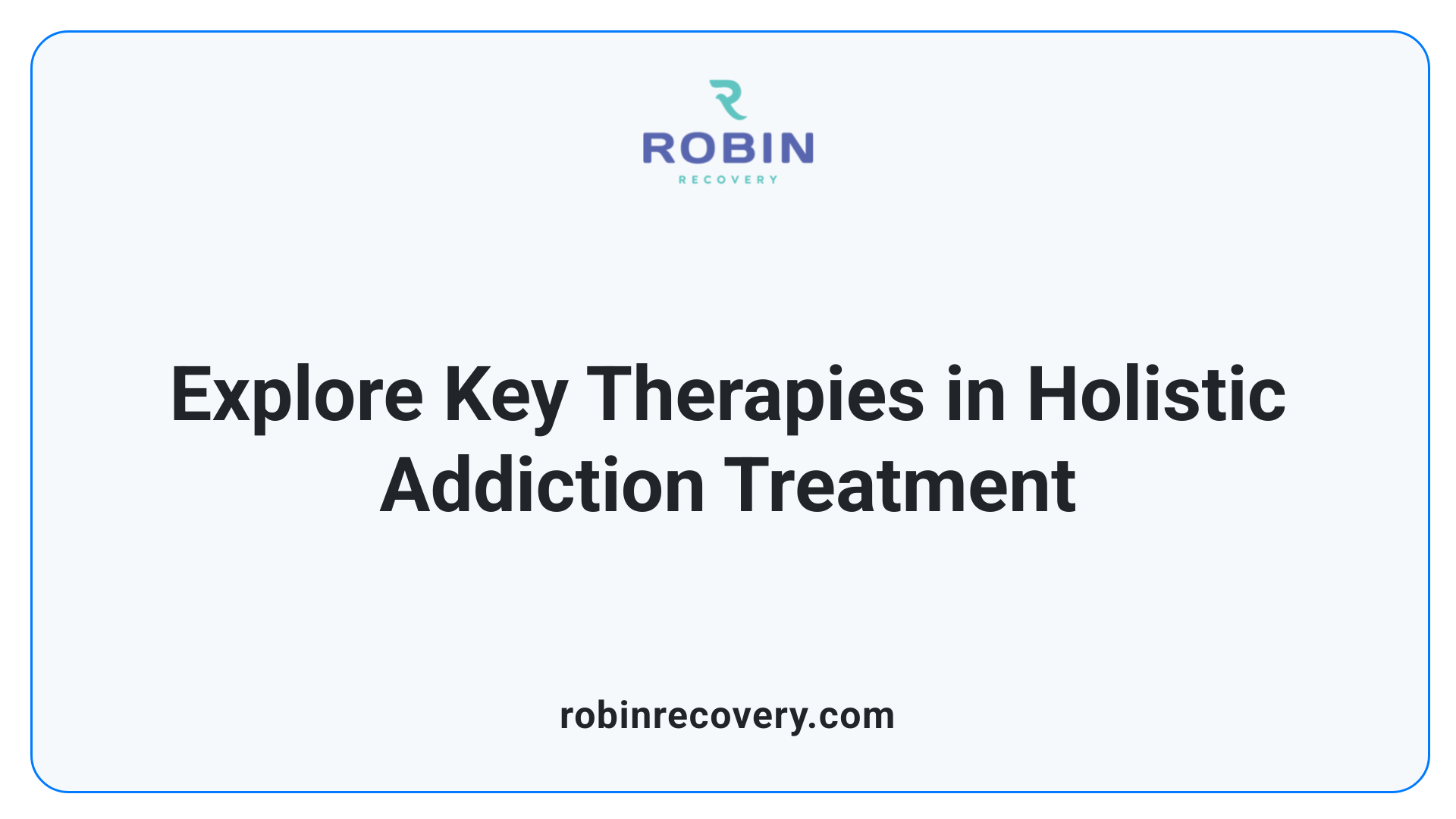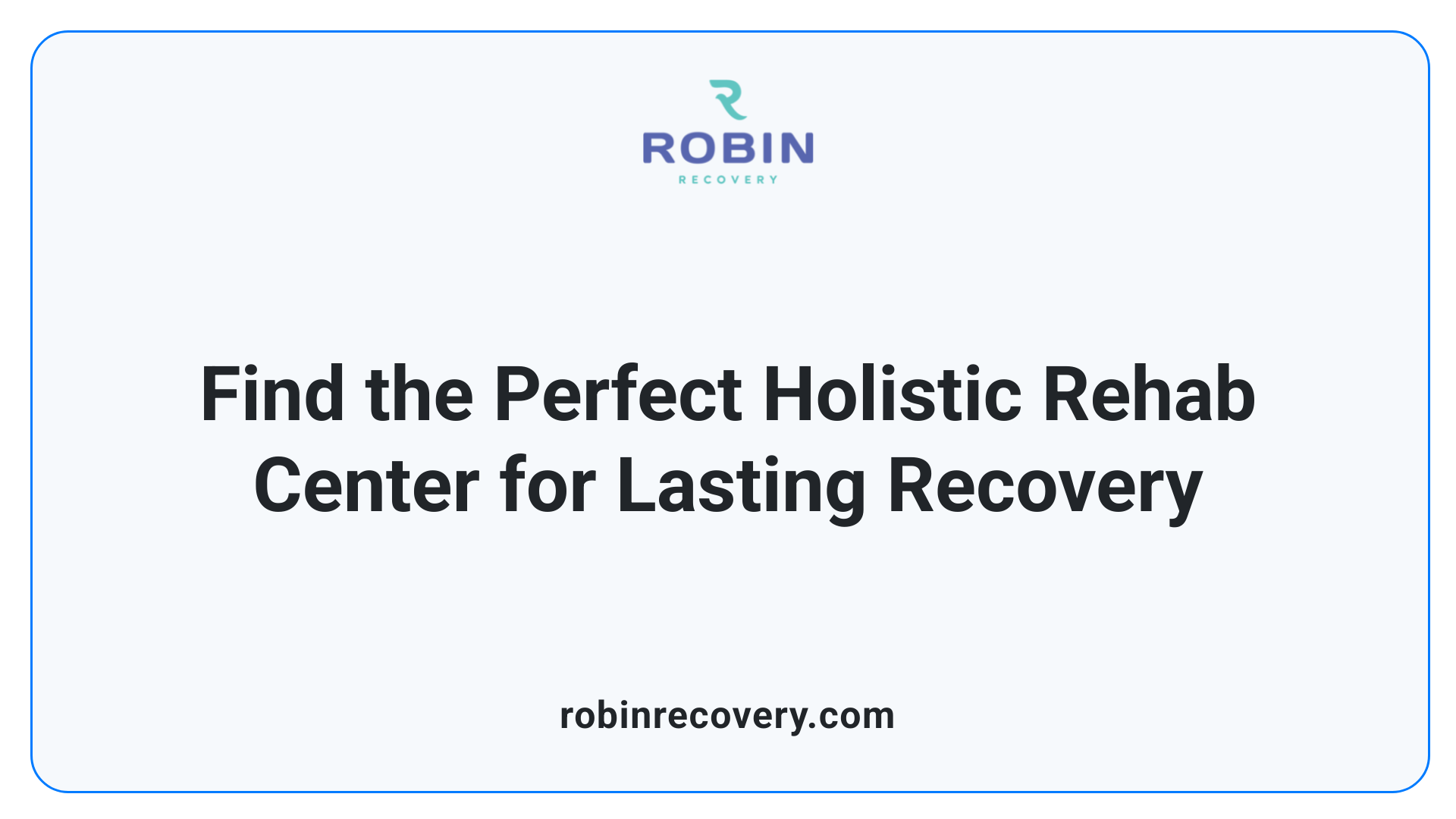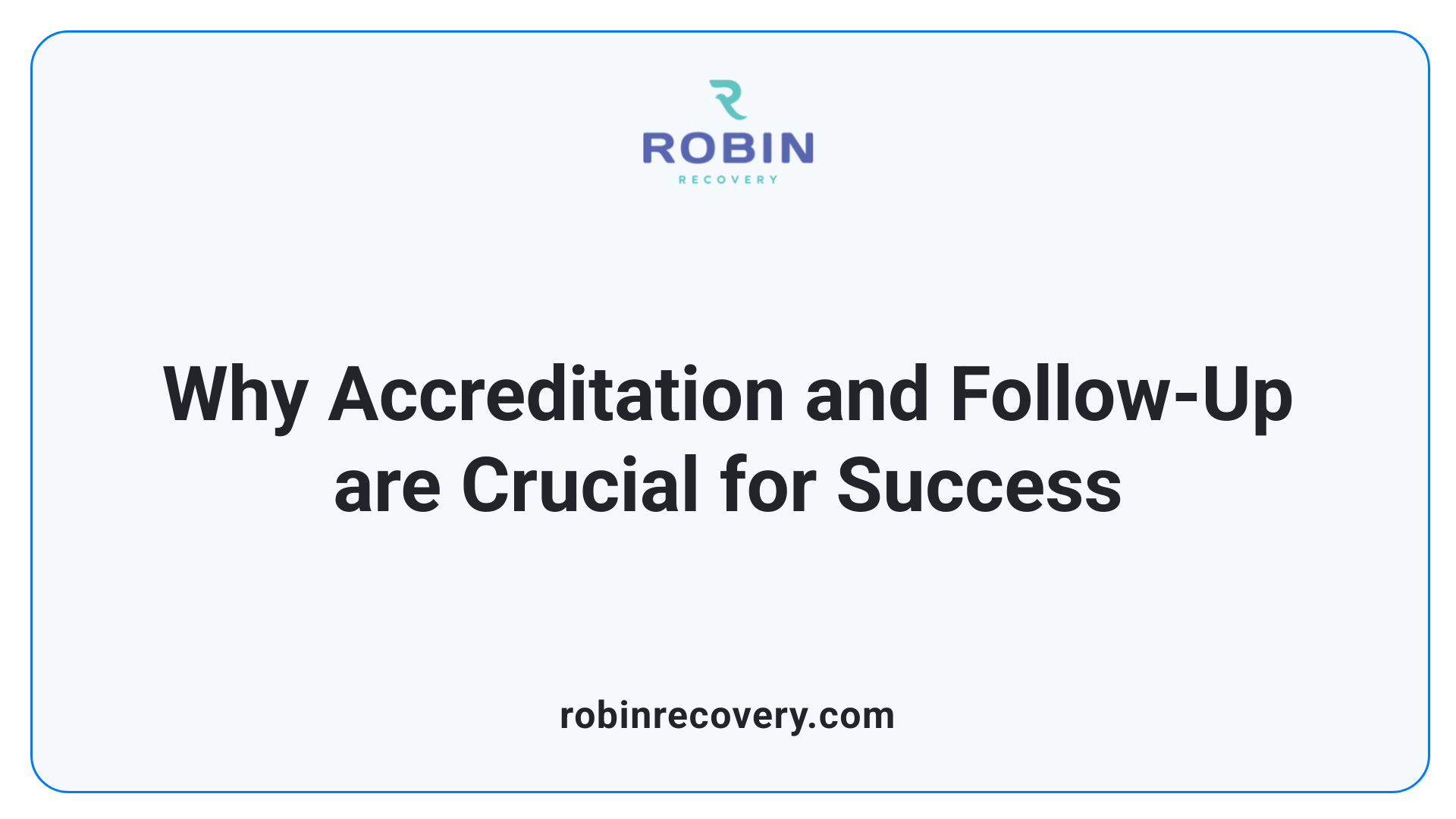What Is a Holistic Treatment Center for Addiction?

Understanding Holistic Treatment Centers for Addiction
Holistic treatment centers for addiction offer a comprehensive approach that addresses the entire person—body, mind, and spirit. These centers combine traditional therapies with alternative methods to promote healing, resilience, and long-term sobriety. By focusing on more than just the addiction, holistic centers aim to restore overall well-being and foster personal growth, making them a vital component in modern addiction recovery.
Defining Holistic Treatment for Addiction

What is holistic addiction treatment?
Holistic addiction treatment is a comprehensive approach that addresses the overall well-being of an individual—covering physical, mental, emotional, and spiritual aspects. Unlike conventional treatments that might focus solely on detoxification or the cessation of substance use, holistic therapy aims to heal the whole person.
It integrates both traditional methods, like cognitive-behavioral therapy (CBT) and medication-assisted treatment, with alternative practices such as herbal remedies, massage, meditation, yoga, art therapy, and mindfulness exercises. These complementary therapies support emotional expression, reduce stress, and improve mental clarity, which are crucial components of sustained recovery.
Holistic treatment often involves a team of healthcare professionals including therapists, nutritionists, spiritual counselors, and physical trainers, all working together to tailor a program suited to the individual's unique needs. When practiced by qualified practitioners within an integrated treatment plan, holistic approaches can enhance treatment satisfaction, engagement, and overall healing.
While scientific evidence supports some benefits of holistic therapies, they are generally used in conjunction with conventional treatments rather than as stand-alone solutions. This combined approach offers a well-rounded path toward healing that not only aims for sobriety but also builds resilience and emotional strength.
Core philosophy of holistic approaches
The foundational philosophy of holistic approaches revolves around the idea that health and wellness depend on the balance and harmony of the body, mind, and spirit. Practitioners believe that when one aspect is out of balance—be it physical, mental, or spiritual—it can impact overall health, potentially leading to or perpetuating addiction.
Holistic philosophy emphasizes treating the individual as a whole rather than just focusing on symptoms or isolated issues. It underscores the importance of understanding and addressing the interconnectedness of emotional, physical, and spiritual health.
This philosophy advocates for personalized care that considers the unique circumstances, background, and needs of each individual. Many holistic treatment programs incorporate therapies like acupuncture, nutritional counseling, spiritual practices, and experiential activities—such as outdoor adventures or creative arts—to foster self-awareness and personal growth.
By promoting self-care, self-awareness, and inner healing, holistic approaches aim to support long-term sobriety, reduce the likelihood of relapse, and improve quality of life beyond just abstinence.
More about holistic addiction treatment
When exploring holistic addiction treatment, it is essential to understand the diversity of therapies involved and their goals. Some common holistic therapies include mindfulness and meditation, nutritional therapy, art and music therapies, yoga, acupuncture, and massage.
These therapies are often integrated into structured treatment programs that also include evidence-based clinical interventions. The combination seeks not just to treat addiction symptoms but to cultivate resilience, self-esteem, and a sense of purpose.
It is worth noting that holistic methods can be particularly beneficial in addressing co-occurring mental health conditions, such as anxiety or depression, which commonly accompany addiction.
Search terms for further exploration
For those interested in learning more, search queries like "What is holistic addiction treatment?" "holistic treatment for addiction," "holistic approaches in rehab," and "holistic therapies for sobriety" can provide a broad overview of this integrative approach.
In summary, holistic addiction treatment seeks to restore balance and health by recognizing the complex, interconnected nature of human well-being. This approach nurtures not only the physical body but also mental clarity and spiritual growth, creating a supportive environment for lasting recovery.
Components and Methods in Holistic Addiction Treatment

What does holistic rehab involve?
Holistic rehab involves a comprehensive approach to addiction treatment that seeks to heal the entire person—mind, body, and spirit. This method recognizes that emotional, mental, and spiritual imbalances can contribute to substance use issues.
Inpatient holistic programs typically provide a structured and supportive environment with supervised detoxification, therapy sessions, family involvement, and a variety of holistic therapies. Such therapies include meditation, spa treatments, yoga, acupuncture, and massage, all designed to promote physical and emotional healing.
Facilities like Carrara Rehab in Malibu exemplify luxury, offering tailored services that blend evidence-based clinical interventions with holistic modalities. These programs focus on addressing not just physical dependence but also underlying psychological and emotional challenges.
The emphasis is on personalized care, creating a setting that fosters long-term sobriety and overall wellness. The holistic approach encourages clients to rebuild their lives with renewed strength, well-being, and purpose.
What is the process of holistic recovery?
Holistic recovery emphasizes addressing a person as an integrated whole. The process involves a blend of therapies and practices to restore balance and health across all parts of life.
Core components include meditation, yoga, breathwork, acupuncture, massage therapy, and nutritional support. These activities help improve physical health, reduce stress, and promote emotional stability.
Beyond physical treatments, holistic recovery aims to identify and resolve the root causes of addiction—be they emotional, psychological, or spiritual. It fosters the development of healthy coping strategies and nurtures hope and purpose.
This approach works alongside traditional detox procedures and emotional support methods without relying on medication, emphasizing natural healing and resilience. Ultimately, the goal is to create sustainable, long-lasting change by promoting mental, emotional, and physical harmony.
What therapies are used in holistic addiction treatment?
Holistic addiction treatment encompasses a wide range of therapies designed to treat the whole person. These therapies include:
- Mindfulness and Meditation: Enhance awareness, reduce anxiety, and develop healthy coping skills.
- Yoga and Movement Therapy: Alleviate stress, improve flexibility, and foster mental calmness.
- Nutritional Therapy: Address nutritional deficiencies, support physical health, and improve emotional stability.
- Creative Arts Therapies: Art, music, dance/movement therapy provide outlets for emotional expression and healing.
- Experiential Therapies: Activities like equine therapy, outdoor adventures, and recreational skills build confidence and promote physical activity.
- Acupuncture and Massage: Help with detoxification, relieve tension, and promote relaxation.
- Spiritual Practices: Practices like prayer, mindfulness, and spiritual groups support inner peace and purpose.
These therapies are often used in conjunction with traditional treatments such as cognitive-behavioral therapy (CBT), dialectical behavior therapy (DBT), individual and group counseling, and family therapy.
How do holistic and traditional methods complement each other?
Holistic therapies do not replace conventional treatment but enhance it by addressing aspects that traditional methods might overlook. For example, while medication-assisted detox addresses physical dependence, holistic therapies support emotional stability, spiritual growth, and overall well-being.
Centers like The Ranch at Dove Tree and Sunrise Recovery integrate these approaches, combining clinical treatments with holistic modalities to create a more comprehensive and engaging recovery experience. This synergy can lead to increased treatment satisfaction, better emotional resilience, and reduced relapse risk.
Why is integrative therapy beneficial?
Integrative addiction recovery underscores the importance of treating the person as a whole. It recognizes the interconnectedness of physical health, mental clarity, emotional stability, and spiritual fulfillment.
Benefits include personalized care plans that consider the unique needs of each individual, promotion of self-empowerment, and a supportive environment that nurtures healing across all life areas. By addressing diverse aspects—nutrition, spirituality, emotional health, and social skills—integrative therapy offers a sustainable pathway toward long-term sobriety.
Overview of holistic modalities used in addiction treatment
Therapy Type Focus Area Description Meditation and Mindfulness Mental and emotional health Enhance awareness and stress reduction Yoga and Movement Physical and mental well-being Improve flexibility, reduce tension, promote relaxation Nutritional Counseling Physical health Correct deficiencies, support recovery via diet Art and Music Therapy Emotional expression Facilitate emotional healing through creative outlets Experiential Activities Physical and social health Outdoor adventures, equine therapy for confidence building Acupuncture and Massage Physical and emotional relief Promote detoxification, reduce stress Spiritual Practices Spiritual growth Prayer, mindfulness, group spiritual activities Complementary Techniques Whole health Aromatherapy, biofeedback, herbal medicine
By integrating these diverse therapies, holistic addiction treatment creates a balanced, supportive environment conducive to deep healing. It addresses all facets of an individual's life, enhancing the potential for sustained recovery and overall well-being.
The Role of Mindfulness, Meditation, and Alternative Therapies
What is a holistic treatment for addiction?
A holistic treatment for addiction addresses the whole person—mind, body, and spirit—to promote complete healing. Unlike traditional treatments that mainly focus on detoxifying and reducing substance use, holistic approaches integrate a variety of practices aimed at enhancing overall well-being. These include herbal remedies, massage therapy, meditation, mindfulness training, yoga, dance, art therapy, and music therapy.
The goal is to reduce stress, foster emotional expression, and improve mental clarity. Such therapies can play a vital role in managing emotional difficulties and supporting mental health during recovery. Holistic methods are often used alongside conventional treatments such as medication and behavioral therapy, creating a comprehensive plan tailored to individual needs.
While scientific evidence supports some benefits like stress reduction and emotional resilience, holistic therapies should always be practiced by qualified professionals and discussed with healthcare providers to ensure safety and integration within a broader treatment program.
Benefits and Efficacy of Holistic Approaches

What does holistic rehab involve?
Holistic rehab offers an integrated approach to addiction treatment that views the individual as a complete system of body, mind, and spirit. Programs typically include supervised detoxification, individual and group therapy, family involvement, and complementary therapies such as meditation, yoga, and spa treatments. Facilities like Carrara Rehab in Malibu exemplify this method by providing personalized treatment plans, combining evidence-based therapies with holistic modalities within a serene environment. This comprehensive care aims not only to address physical dependence but also to heal emotional and psychological wounds, promote spiritual growth, and build resilience, leading to a sustained recovery.
What are the benefits of holistic addiction treatment?
Holistic addiction treatment offers many advantages over traditional methods. It provides personalized, multifaceted care that targets mental, emotional, physical, and spiritual health. Many patients experience improved emotional well-being, greater treatment satisfaction, and enhanced engagement in their recovery journey. Incorporating lifestyle interventions such as nutrition, exercise, and herbal therapies promotes physical healing and reduces withdrawal symptoms.
Moreover, holistic therapies strengthen inner connections, foster self-love, and build resilience—critical factors for long-term sobriety. Addressing co-occurring mental health conditions like depression and anxiety is also a focus, with therapies aimed at rebuilding emotional stability and self-care practices. Ultimately, holistic approaches support an overall sense of wellness, aligning the mind, body, and spirit in the path toward lasting recovery.
How does holistic treatment compare to traditional methods?
Traditional addiction treatments mainly involve medical detoxification, medication management, and behavioral therapies rooted in evidence-based practices. These are highly effective for managing withdrawal symptoms and preventing relapse but often focus narrowly on physical dependence and behavioral change.
In contrast, holistic treatment expands beyond these core elements by including therapies that promote emotional regulation, spiritual connection, and physical well-being. Modalities such as yoga, meditation, art therapy, and nutritional counseling aim to reduce stress, enhance emotional health, and foster inner peace. Although research on some holistic techniques remains mixed, many programs find that these methods improve patient satisfaction, reduce anxiety, and support resilience, making them valuable supplements to conventional approaches.
What is the overall benefit of integrating holistic therapies with conventional treatments?
Combining holistic therapies with evidence-based medical and psychological treatments creates a well-rounded recovery system. This integration enhances patient engagement, as individuals often find holistic activities more relaxing and empowering, which can motivate ongoing participation.
Holistic modalities support emotional health by teaching coping skills, reducing stress, and promoting inner calm. They also address physical well-being directly through activities like exercise and nutritional enhancement, encouraging detoxification, improving energy levels, and restoring nutritional deficiencies.
This blended approach helps reduce relapse risks associated with unmanaged psychological stress or physical discomfort. It also nurtures spiritual growth and social connection, fostering hope and purpose. Overall, integrating these modalities provides a comprehensive pathway to recovery that addresses all dimensions of a person’s well-being, ultimately increasing the likelihood of sustained sobriety and a healthier, balanced life.
Choosing the Right Holistic Treatment Center

What should one consider when selecting a holistic rehab program?
Selecting an appropriate holistic rehab program involves careful assessment of several critical factors. First, it is important to evaluate the array of therapies offered. A comprehensive program will incorporate practices like mindfulness, meditation, yoga, nutritional counseling, art and music therapy, alongside traditional treatments. Personalization is another vital aspect; effective centers tailor treatments to each individual's unique needs, addressing specific emotional, mental, physical, and spiritual concerns.
Staff qualifications and expertise also play a crucial role. Certified therapists, medical professionals, spiritual counselors, and practitioners of alternative therapies ensure that treatments are safe, effective, and appropriately customized. Accreditation from reputable organizations such as the Joint Commission or Psych Armor signifies adherence to high standards of safety, quality, and patient care.
Program duration varies, often from 30 to 90 days. The length should correspond to the individual's recovery needs and comfort, with longer programs potentially offering more comprehensive support. Moreover, success stories, patient testimonials, and reviews can provide insight into the effectiveness of a center’s approach and the quality of the environment.
Additional considerations include the center’s location, the availability of aftercare support, costs, insurance coverage, and the overall atmosphere—elements that significantly influence the recovery experience and outcomes.
What role does accreditation and staff expertise play in holistic centers?
Accreditation from esteemed bodies like the Joint Commission or Psych Armor is essential in verifying that a treatment facility complies with rigorous standards for safety, care quality, and ethical practice. Such accreditation ensures that the center maintains a high level of professionalism and that treatment protocols are evidence-based and effective.
Staff expertise is equally important. Qualified professionals—including licensed therapists, psychiatrists, medical doctors, spiritual guides, nutritionists, and alternative therapy practitioners—bring the necessary skills to deliver integrated, holistic care. Their training enables them to create personalized treatment plans that combine traditional modalities with holistic therapies, addressing the complex needs of each individual.
Having a well-trained, multidisciplinary team facilitates continuous monitoring, adjustment of therapies, and support throughout recovery, greatly enhancing the chance of success.
Why is individualized treatment planning crucial in holistic addiction care?
Every individual’s addiction journey is different, shaped by personal history, mental health, physical condition, and spiritual beliefs. Customized treatment plans allow centers to target these unique aspects effectively. Personalization helps in addressing underlying issues such as trauma, nutritional deficiencies, or mental health disorders, which are often intertwined with addiction.
Tailored plans foster greater engagement and commitment from patients, increasing the likelihood of positive outcomes. They also help in setting realistic goals aligned with personal values and beliefs, thereby supporting long-term sobriety and resilience.
By focusing on the whole person, holistic centers diminish the risk of relapse and promote sustainable recovery. Personalized planning underscores the importance of treating not just the addiction but the individual as a whole—mind, body, and spirit.
Additional Factors to Consider
Consideration Details Importance Program Range and Flexibility Availability of therapies like acupuncture, biofeedback, spiritual groups Ensures comprehensive and adaptable care aligned with individual preferences Location and Environment Settings providing tranquility and privacy Supports healing and emotional comfort Cost and Insurance Options Coverage details and affordability Accessibility and sustainability of treatment Follow-up and Support Services Availability of ongoing care and relapse prevention programs Ensures long-term success and maintenance of recovery
Choosing a holistic treatment center demands a thorough evaluation of these elements. An ideal program integrates diverse, evidence-based, and alternative therapies conducted by qualified staff in accredited facilities. Its structure should be flexible enough to meet individual needs, fostering a supportive environment for lasting recovery.
The Impact of Accreditation and Follow-Up Care in Holistic Treatment

What is the significance of accreditation in holistic centers?
Accreditation by reputable organizations such as the Joint Commission and Psych Armor plays a crucial role in establishing the credibility of holistic addiction treatment centers. It signifies that the facility complies with high standards for quality, safety, and effectiveness. For individuals seeking recovery, accreditation offers reassurance that the center employs proven protocols and maintains rigorous staff qualifications. These standards ensure that clients receive care that prioritizes their well-being and adheres to healthcare regulations, fostering a trustworthy environment conducive to healing.
Accredited centers often undergo regular evaluations and improvements, which translates into consistent quality in treatments and therapies provided. This commitment to excellence not only enhances treatment outcomes but also boosts client confidence in the process, encouraging engagement and active participation.
What is the importance of follow-up care after holistic treatment?
Follow-up care is a vital element for sustaining the success achieved during initial addiction treatment. It involves continued engagement through outpatient services, therapy sessions, support groups, and relapse prevention programs. This ongoing support helps individuals manage potential triggers, reinforce healthy habits, and nurture emotional and spiritual growth over the long term.
Holistic treatment recognizes that recovery doesn’t end once formal care concludes. Post-treatment support provides a safety net that assists individuals in navigating everyday challenges, maintaining balanced physical, mental, and spiritual well-being. Regular follow-up can address emerging issues early, reducing the likelihood of relapse.
Moreover, continuous care often includes education on coping strategies, lifestyle adjustments, and reinforcement of mindfulness, nutrition, and stress management techniques learned during treatment. Integrating holistic and conventional care specialists ensures comprehensive monitoring of progress, which supports enduring sobriety and resilience.
Program Features and Best Practices
Aspect Description Additional Details Accreditation Standards Ensures quality, safety, and compliance with regulations Regular evaluations, staff qualifications, protocols Post-Treatment Support Maintains long-term recovery outcomes Therapy, support groups, relapse prevention, ongoing counseling Client Engagement Encourages active participation and adherence Personalized plans, family involvement, community programs Continuous Monitoring Tracks progress and detects early signs of relapse Follow-up evaluations, progress assessments, adjustments Integration of Services Combines holistic and conventional therapies Mindfulness, nutrition, therapy, alternative practices
Final Thoughts
Choosing an accredited holistic treatment center can significantly influence the recovery experience and long-term success. Accreditation guarantees adherence to recognized standards, promoting client safety and superior care quality. Equally important is the integration of robust follow-up care, which sustains progress, prevents relapse, and supports ongoing personal development.
By combining accreditation with comprehensive aftercare strategies, holistic centers create a supportive environment that not only addresses addiction symptoms but also nurtures the overall well-being of individuals. This holistic approach ensures that recovery is not just about abstinence but also about restoring a balanced, meaningful, and fulfilling life.
A Path Toward Lasting Sobriety and Well-Being
Holistic treatment centers for addiction provide a comprehensive and personalized approach that recognizes the complexity of recovery. By integrating traditional therapies with alternative modalities—such as meditation, yoga, nutritional counseling, and creative therapies—these centers address the whole person and support lasting healing. While research on some holistic methods continues to evolve, their benefits in enhancing emotional resilience, reducing stress, and fostering spiritual growth are widely acknowledged. When selecting a holistic rehab program, it’s essential to consider accreditation, staff expertise, personalized treatment plans, and ongoing support. Ultimately, holistic addiction treatment offers a promising path to not just sobriety but a renewed, balanced life rooted in physical health, emotional stability, and spiritual fulfillment.
References
- What is Holistic Addiction Treatment? | RACNJ
- Holistic Addiction Treatment Programs & Rehab Centers Near Me
- Holistic Addiction Treatment Center - Ranch at Dove Tree
- Holistic Addiction Treatment - Alpine Recovery Lodge
- What Is Holistic Treatment for Drug Addiction? - Crest View
- 50 Best Holistic Centers (Insurance & Pricing) - Recovery.com
- An holistic approach to substance abuse treatment - PubMed
- Find Holistic Drug & Alcohol Addiction Treatment Programs
